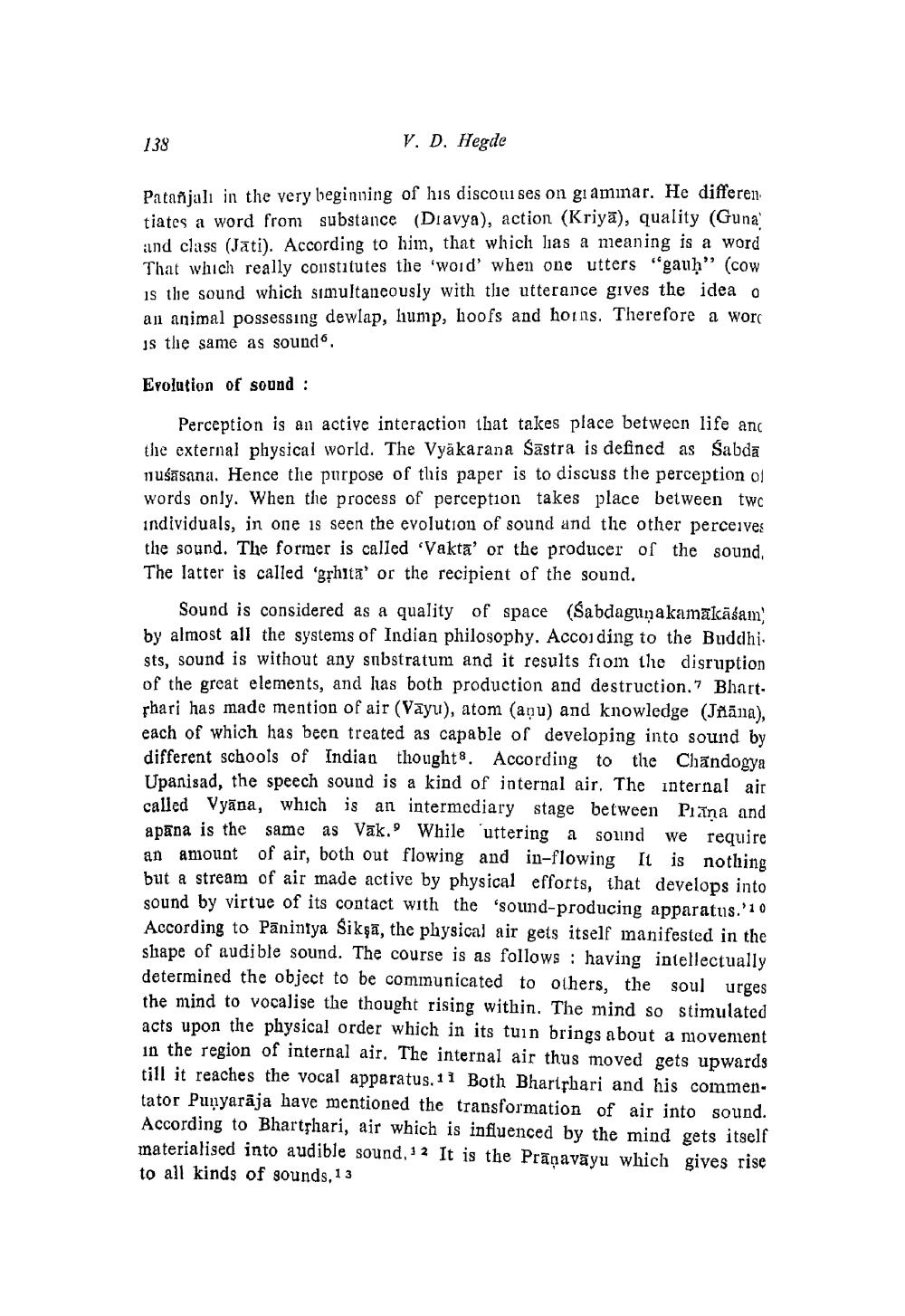________________
138
V. D. Hegde
Patanjali in the very beginning of his discourses on gi aminar. He differen. tiates a word from substance (Dravya), action (Kriyā), quality (Guna' and class (Jati). According to him, that which lias a meaning is a word That which really constitutes the 'word' when one utters "gauh" (COW is the sound which simultaneously with the utterance gives the idea o an animal possessing dewlap, hump, hoofs and horns. Therefore a word is the same as sound
Erolution of sound :
Perception is an active interaction that takes place between life and the external physical world. The Vyakarana Šāstra is defined as Sabda nuśasana. Hence the purpose of this paper is to discuss the perception of words only. When the process of perception takes place between two individuals, in one is seen the evolution of sound and the other perceives the sound. The former is called 'Vaktā' or the producer of the sound, The latter is called 'grhita' or the recipient of the sound.
Sound is considered as a quality of space (Sabdaguņakamākāšam by almost all the systems of Indian philosophy. Accoi ding to the Buddhi. sts, sound is without any substratum and it results from the disruption of the great elements, and has both production and destruction.? Bhartshari has made mention of air (Vayu), atom (aņu) and knowledge (Jñāna), each of which has been treated as capable of developing into sound by different schools of Indian thoughts. According to the Chandogya Upanisad, the speech sound is a kind of internal air. The internal air called Vyāna, which is an intermediary stage between Plana and Adana is the same as Vāk. While uttering a sound we require an amount of air, both out flowing and in-flowing It is nothing but a stream of air made active by physical efforts, that develops into sound by virtue of its contact with the 'sound-producing apparatus.'10 According to Panintya Sikşa, the physical air gets itself manifested in the shape of audible sound. The course is as follows : having intellectually determined the object to be communicated to others, the soul urges the mind to vocalise the thought rising within. The mind so stimulated acts upon the physical order which in its tuin brings about a movement in the region of internal air. The internal air thus moved gets upwards till it reaches the vocal apparatus. 11 Both Bhartphari and his commentator Punyarāja have mentioned the transformation of air into sound. According to Bhartshari, air which is influenced by the mind gets itself materialised into audible sound, 1 2 It is the Prāņavāyu which gives rise to all kinds of sounds, 13




